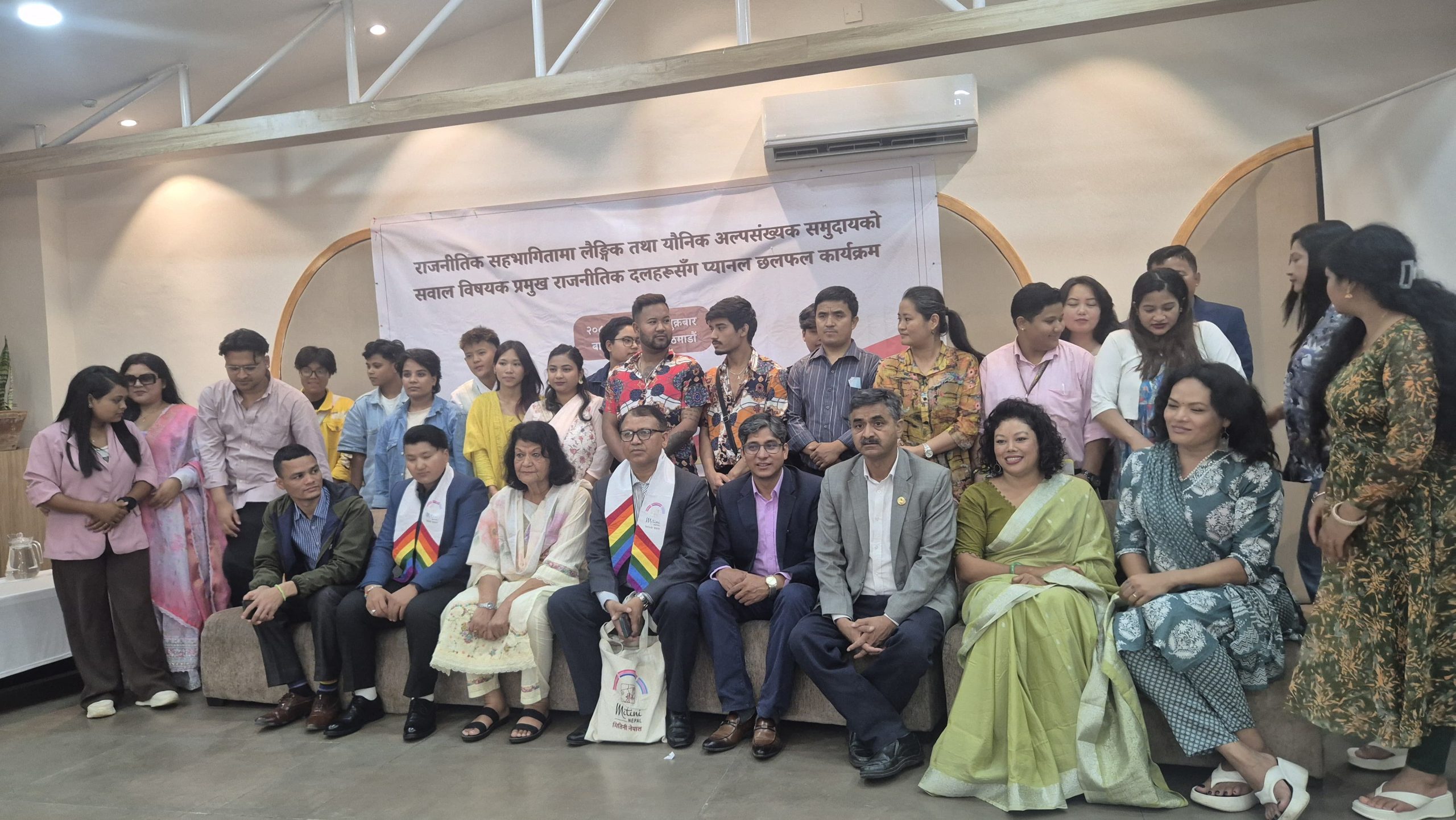
Kathmandu: Samon Chhetri, an LLB student, was recently barred from contesting the Free Students’ Union (FSU) election at his college, a moment he describes as deeply hurtful and disappointing.
Samon, who identifies as a trans man, believes that this act constituted a violation of his constitutional rights. He is convinced that his exclusion was not based on any procedural issue but rather on his sexual orientation and gender identity.
Born with female genitalia and socially prescribed a gender role as a girl, Samon gradually discovered that his gender identity and sexual orientation did not align with traditional societal expectations.
Since childhood, he has been passionate about pursuing a political career. However, when the opportunity arose at college, he was advised to contest the election as a woman, a condition he found unacceptable. This incident reflects a broader reality: individuals from sexual and gender minority communities continue to face systemic exclusion when attempting to enter political spaces.
To call out these concerns, members of the sexual and gender minority communities here today participated in a panel discussion with representatives from major political parties. The event aimed at raising awareness and sensitizing political figures about the barriers faced by these communities in accessing political leadership.
During the discussion, Sarita KC, Executive Director of Mitini Nepal, highlighted relevant constitutional provisions, including Articles 12, 18, and 42 of the Constitution, which recognize the identity and guarantee the fundamental rights of sexual and gender minorities. She emphasized the urgent need to bridge the legal and structural gaps that hinder the political participation of these communities. “We are not just vote banks,” she said passionately, “we deserve equal and proportional representation in political leadership.”
Another participant echoed this sentiment, stating, “We are sought for election publicity and counted as votes, but when we express our aspirations to lead, we are dismissed under various pretexts.”
Panelists included Jiban Pariyar, Joint General Secretary of the Nepali Congress; Thakur Gaire, Politburo Member of CPN-UML; and Roshan Karki, Vice Chairperson of the Rastriya Prajatantra Party (RPP). All the three House of Representatives acknowledged that their respective parties have yet to fully recognize and incorporate the political rights of sexual and gender minorities. They pledged to work towards inclusive reforms.
One of the key recommendations was the establishment of a dedicated ‘Rainbow Department’, symbolizing diversity and inclusiveness within the gender and sexual minorities, in every political party. Participants also urged parties to explicitly mention the representation of gender and sexual minorities in their party statutes and ensure their inclusion in leadership roles.
“We are entirely invisible in the election manifestos of political parties,” another participant pointed out, underlining the lack of political acknowledgment of the presence of ‘Rainbow’ community in the society,
Laxmi Ghalan, founder/ president of Mitini Nepal and a panelist at the discussion, said that achieving the Sustainable Development Goals (SDGs) will remain an elusive dream unless the political rights of sexual and gender minorities are fully guaranteed.
While the 2021 Nepal National Population and Housing Census officially recorded 2,998 individuals as gender and sexual minorities, it has been estimated the actual number ranges between 0.9 to 1.3 million. Many remain uncounted due to societal stigma, fear of coming out, and technical limitations in data collection.
The dialogue concluded with a collective call to political leaders, the Election Commission, and relevant authorities to build a truly inclusive political environment in which identity does not dictate access to leadership, and every citizen, regardless of gender or sexual orientation, has the right to engage in and contribute to the shaping of nation’s future.

Happy

Sad

Surprised

Excited

Angry